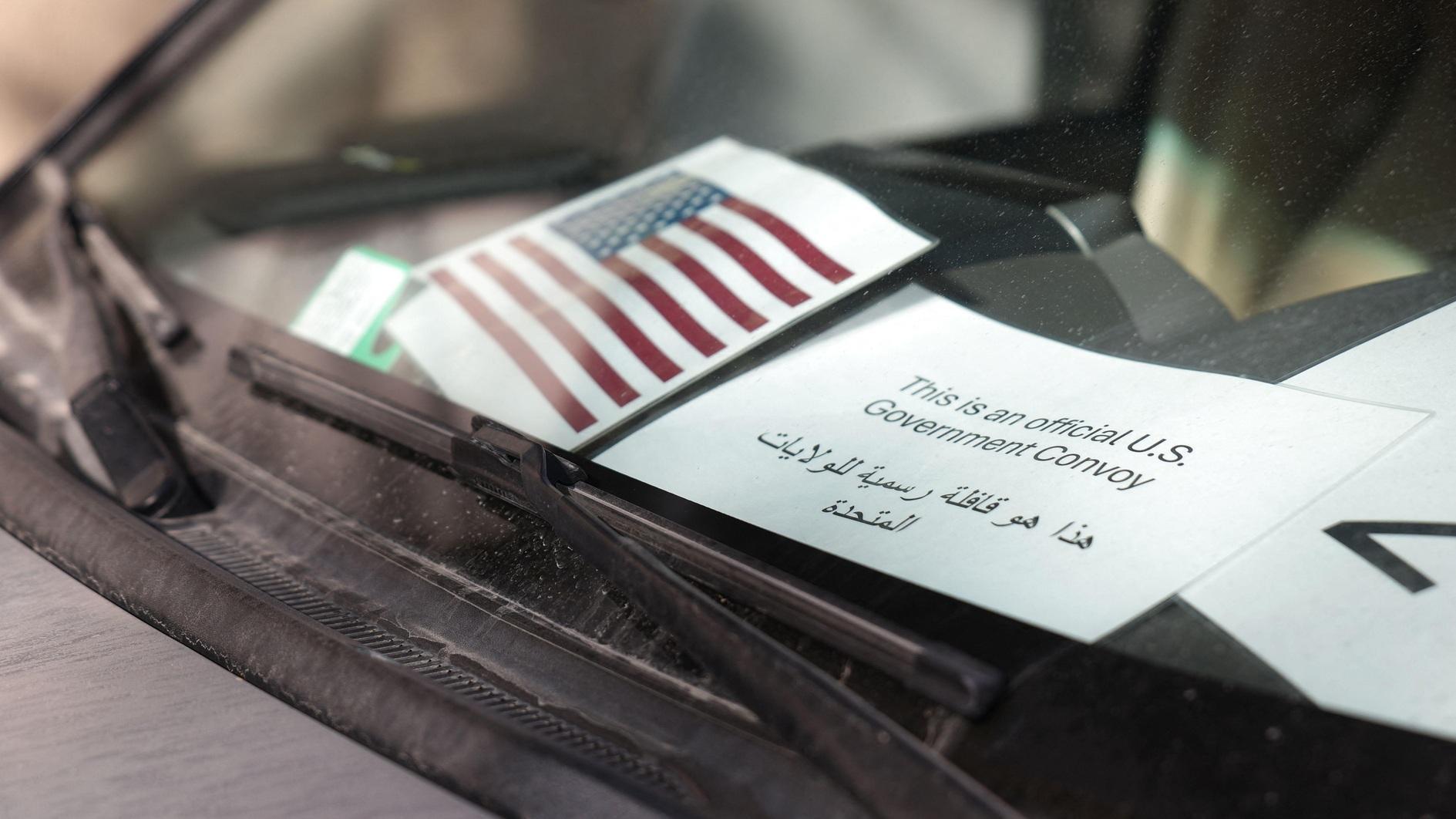
This photo shows a car belonging to the US delegation parked outside a hotel in Damascus on Dec. 20, 2024
The first U.S. diplomats to visit Syria since President Bashar Assad’s ouster earlier this month are in Damascus on Dec. 20 to hold talks with the country’s new leaders and seek information on the whereabouts of missing American journalist Austin Tice.
Assistant Secretary of State for Near Eastern Affairs Barbara Leaf, former special envoy for Syria Daniel Rubinstein and the Biden administration’s chief envoy for hostage negotiations, Roger Carstens, made the trip for talks with Syria’s interim leaders , the State Department said.
The State Department said Rubinstein, Leaf and Carstens would meet with officials from Hayat Tahrir al-Sham (HTS) — but did not say if the group's leader Ahmad al-Sharaa, or Abu Mohammed al-Jolani, who was once aligned with al-Qaida, would be among those they see.
The team is also the first group of American diplomats to formally visit Syria in more than a decade since the U.S. shuttered its embassy in Damascus in 2012.
“They will be engaging directly with the Syrian people, including members of civil society, activists, members of different communities, and other Syrian voices about their vision for the future of their country and how the United States can help support them,” the State Department said.
At the top of their agenda will be information about Tice, who went missing in Syria in 2012. And they will push the principles of inclusion, protection of minorities and a rejection of terrorism and chemical weapons that the Biden administration says will be critical for any U.S. support for a new government.
The diplomats' visit to Damascus will not result in the immediate reopening of the U.S. embassy, which is under the protection of the Czech government, according to U.S. officials, who said decisions on diplomatic recognition will be made when the new Syrian authorities make their intentions clear.
HTS is designated a foreign terrorist organization by the United States and others. While that designation comes with a raft of sanctions, it does not prohibit U.S. officials from speaking to its members or leaders.
U.S. officials say the HTS leader’s public statements about protecting minority and women’s rights are welcomed, but they remain skeptical that he will follow through on them in the long run.
The U.S. has not had a formal diplomatic presence in Syria since 2012, when it suspended operations at its embassy in Damascus during the country’s civil war, although there are U.S. troops in small parts of Syria engaged in the fight against the ISIL terrorist organization.
The Pentagon revealed on Dec. 19 that the U.S. had doubled the number of its forces in Syria to fight ISIL before Assad’s fall. The U.S. had said for years that there were about 900 troops in Syria, but the Pentagon acknowledged there were roughly 2,000 there now.